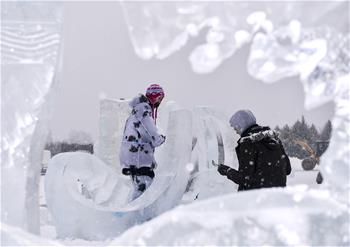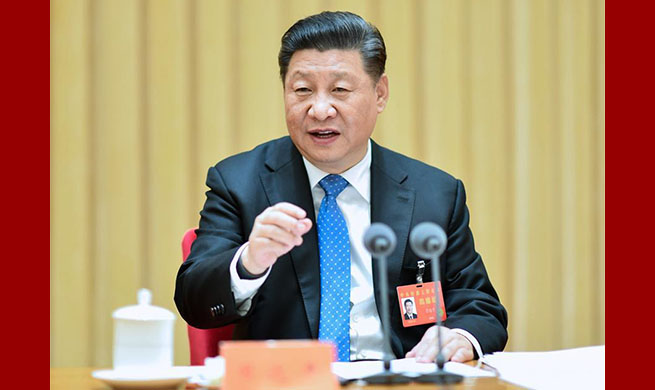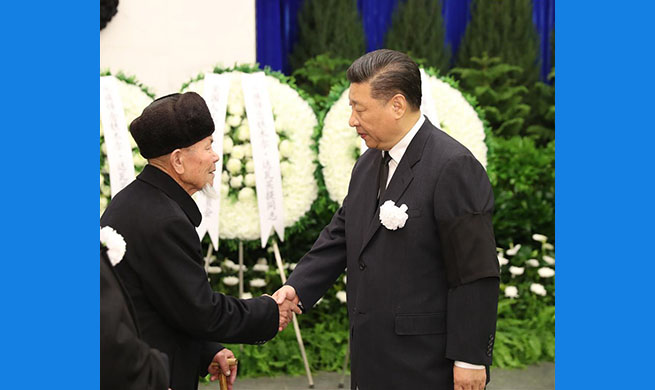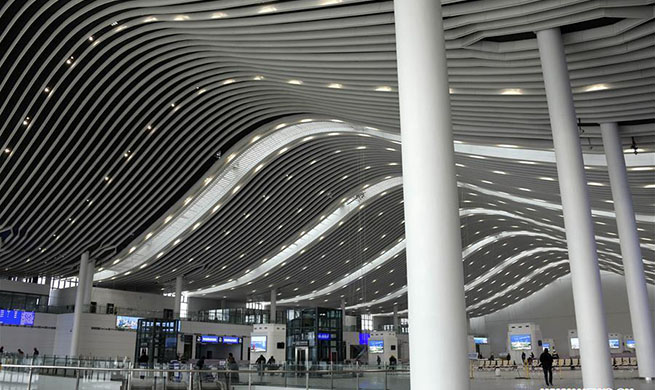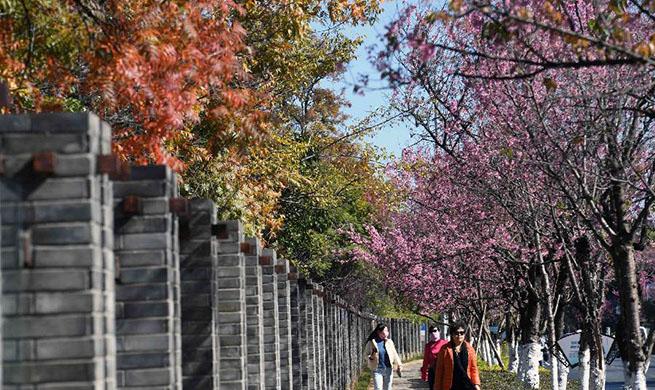BELGRADE, Dec. 21 (Xinhua) -- Successful resolution of the Macedonia naming dispute along the lines of the Prespa agreement could boost Serbia-Greece cooperation and contribute to faster development of the Balkans region, Serbian President Aleksandar Vucic said here Friday.
Vucic made the remarks at the second session of the Serbia-Greece High-Level Cooperation Council with Greek Prime Minister Alexis Tsipras, while ministers of the two governments met at bilateral meetings.
According to report from Serbia's public broadcaster RTS, Vucic and Tsipras discussed important regional issues, economic exchange between the two countries, infrastructural interconnection and other topics such as digitalization, telecommunication, energy and sports.
Vucic said at a press conference that the implementation of the Prespa Agreement between Macedonia and Greece over the future name of Macedonia is immensely important for bilateral relations as "Republic of North Macedonia becomes a kind of a bridge between Serbia and Greece, which will additionally connect the two countries."
By signing the Prespa Agreement, Tsipras said, Greece confirmed its role for regional stability and it will also have implications for improvement of its relations with Serbia.
"That country (Macedonia) represented a gray zone between us. Instead of a wall, now we will have a bridge," he agreed. "Prespa Agreement will help us develop cooperation through investments, as well as projects that would support our interconnection."
Tsipras said that, immediately after the implementation of the Prespa Agreement, Serbia will be involved in one of the first international agreements between Athens and Skopje, which will establish a common railway corridor to connect Thessaloniki, Skopje, Belgrade and Budapest.
"By doing this we will enable faster exchange of people and goods between Serbia, Thessaloniki and Skopje," Tsipras said, highlighting economic benefits for the whole region.
Vucic reminded that in the following weeks Serbia will complete the southern part of its Corridor 10, which means that people from Greece would be able to drive across Serbia by highway.
He warned that the railway connection still represents a much bigger problem.
"We need much faster railway and trains. I believe that we will be able to resolve this issue with Skopje and Greece. If everything ends well with the Prespa Agreement, we could stage a Athens-Belgrade-Skopje trilateral meeting to the benefit of all sides," Vucic said.
Vucic revealed that trade between Serbia and Greece increased this year by 9 percent, and it is expected to exceed 500 million euros.
Imports from Serbia to Greece are 10.7 percent higher than last year, while exports increased by 7 percent.
Vucic announced that the third session of the cooperation council will be held in the upcoming spring, when the two countries will also sign "important documents on strategic cooperation".
Although Tsipras ended his visit to Serbia on Friday, he will stay in Belgrade on Saturday to attend the quadrilateral meeting with leaders of Bulgaria and Romania.
